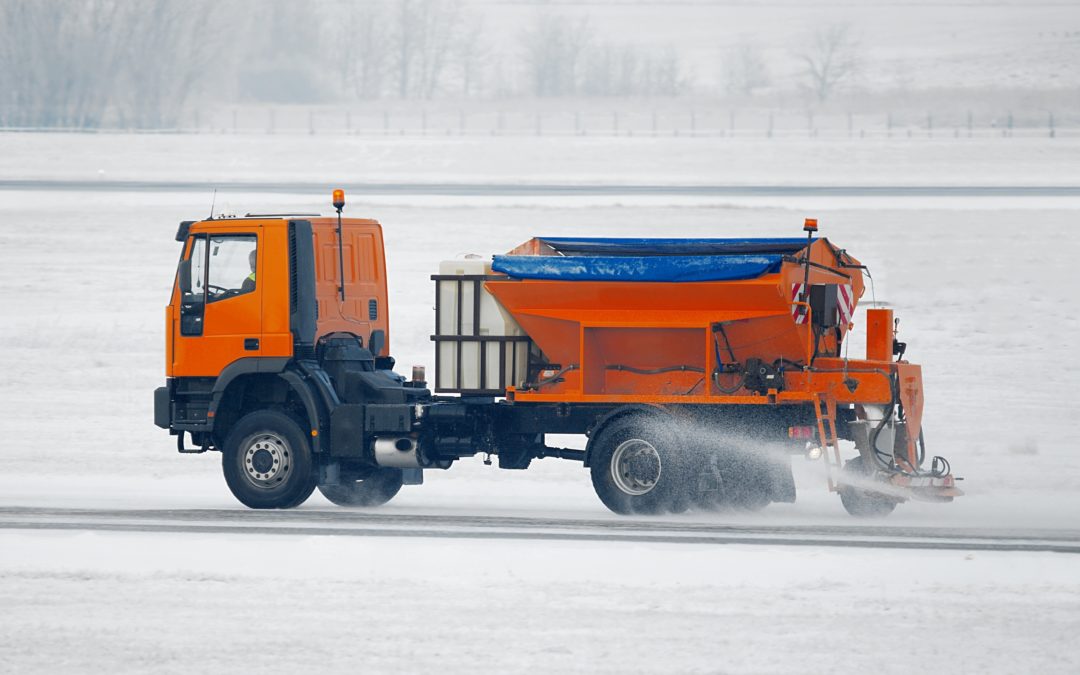
by lakeridge | Oct 14, 2019 | Commercial Paving, Residential Paving
You may have heard that salting asphalt roads, driveways and parking lots damages the pavement. There’s good news and bad news. Hot mix asphalt will not deteriorate when salted for de-icing purposes, but de-icers may exacerbate the effects of the freeze-thaw cycle and worsen existing potholes. Concrete driveways or parking lots are another story. Salt can damage the molecular bonds holding the concrete together, resulting in deterioration, weakened surfaces and compromised weight-bearing capacity. Asphalt driveway and parking lot owners shouldn’t celebrate prematurely though. Using rock salt to de-ice your driveway, parking lot or access roads can have negative consequences for local groundwater and living things, including animals and landscape features. What Are the Negatives of Salting Asphalt Pavement? Hot-mix asphalt is comprised of sand, petroleum and stone aggregate to maximize its stability and durability. One of asphalt’s beneficial attributes is a natural resistance to the potential damages of the freeze-thaw cycle. The asphalt formula also makes this type of pavement resistant to damage by salt. However, if asphalt paving is already in a degraded state, such as being riddled with potholes and cracks for example, the salt may potentially worsen damage caused by the freeze-thaw cycle. Salt will melt the water, which will stay liquid long enough to penetrate deeper and in larger quantities than it would if it were not salted. When the water does eventually freeze, it may further expand cracks and deepen/widen potholes. The salt itself isn’t the root cause but can be a contributing factor if the asphalt paving is poorly maintained or damaged prior to salting. Concrete, on the other hand, is vulnerable to...
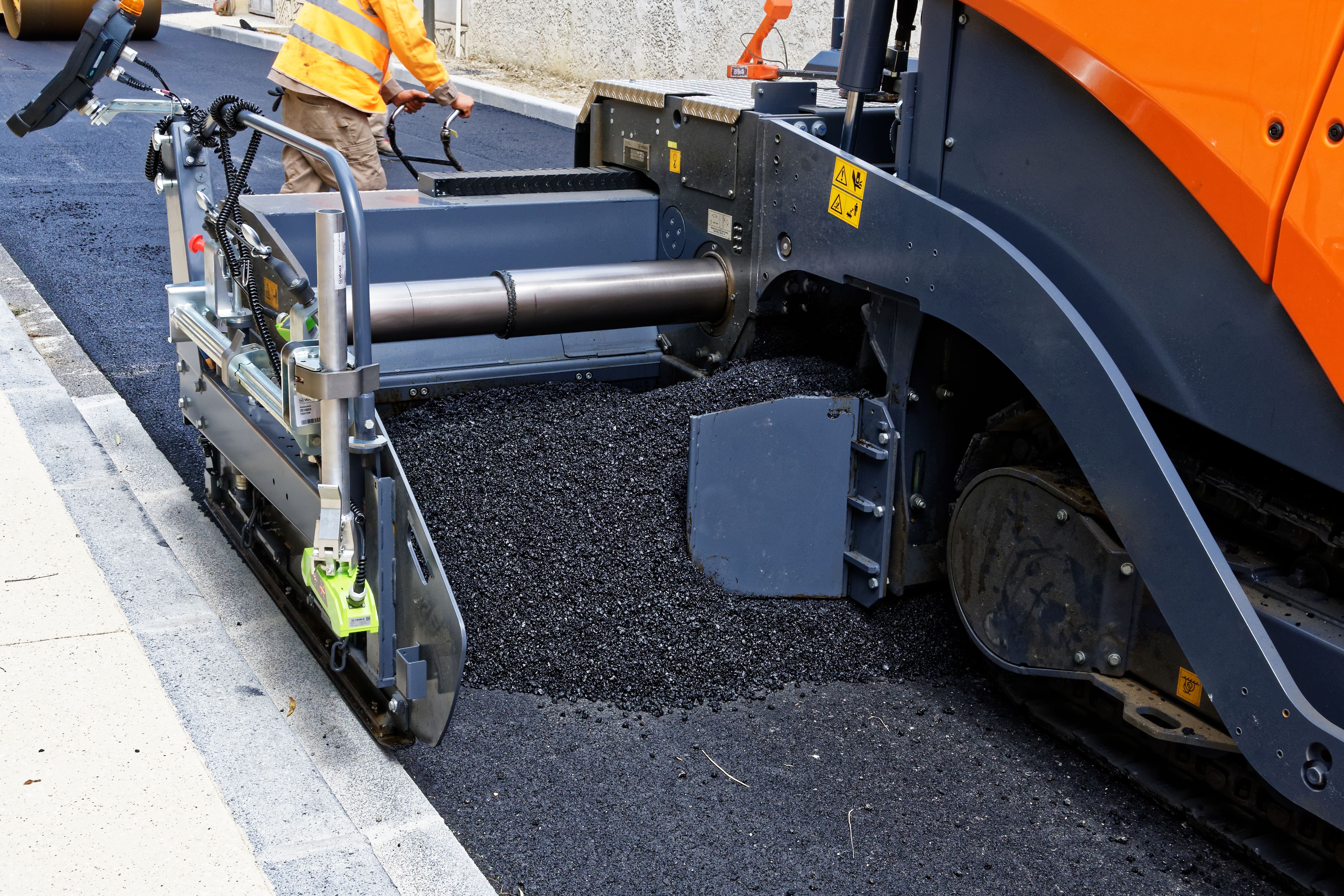
by lakeridge | Oct 14, 2019 | Commercial Paving, Residential Paving
An asphalt overlay is a layer of new asphalt applied over the existing base layer of asphalt on a driveway, parking lot or road. These new layers are generally about 1.5- to 3-inches thick, depending on the demands on the asphalt and the depth of surface asphalt removed. An asphalt overlay should not be considered an adequate alternative to repaving in every case, but it is a way to significantly extend the useful life of your paved surfaces if the base of your pavement is still in good shape. When Is an Asphalt Overlay Appropriate? There are several signs that indicate it’s time for some type of reparative action, whether it’s an asphalt overlay, repaving or just patching. Some of these signs include: Cracks Uneven pavement surface Potholes Promptly having cracks and potholes filled and sealed will extend the life of your driveway or parking lot and prevent those issues from worsening due to weather, heavy use and the passage of time. Fixing defects and damages is also important from a liability standpoint. Potholes are tripping hazards and can damage vehicles. No business wants to see their customers or employees get hurt or damage their property during their visit. The restorative solution you choose should be based on the age of the asphalt pavement and the severity of the issues affecting your asphalt driveway, parking lot or road. If a commercial parking lot was repaved within the past five or 10 years, complete asphalt repaving is likely excessive. However, if potholes and cracks are causing frequent problems, basic patching may not be enough to address the underlying problems. A...
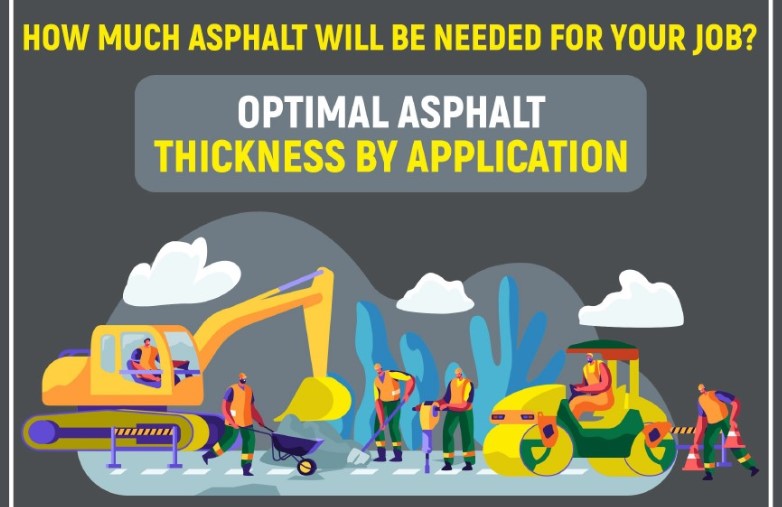
by lakeridge | Sep 20, 2019 | Commercial Paving, Residential Paving
See Full Infographic
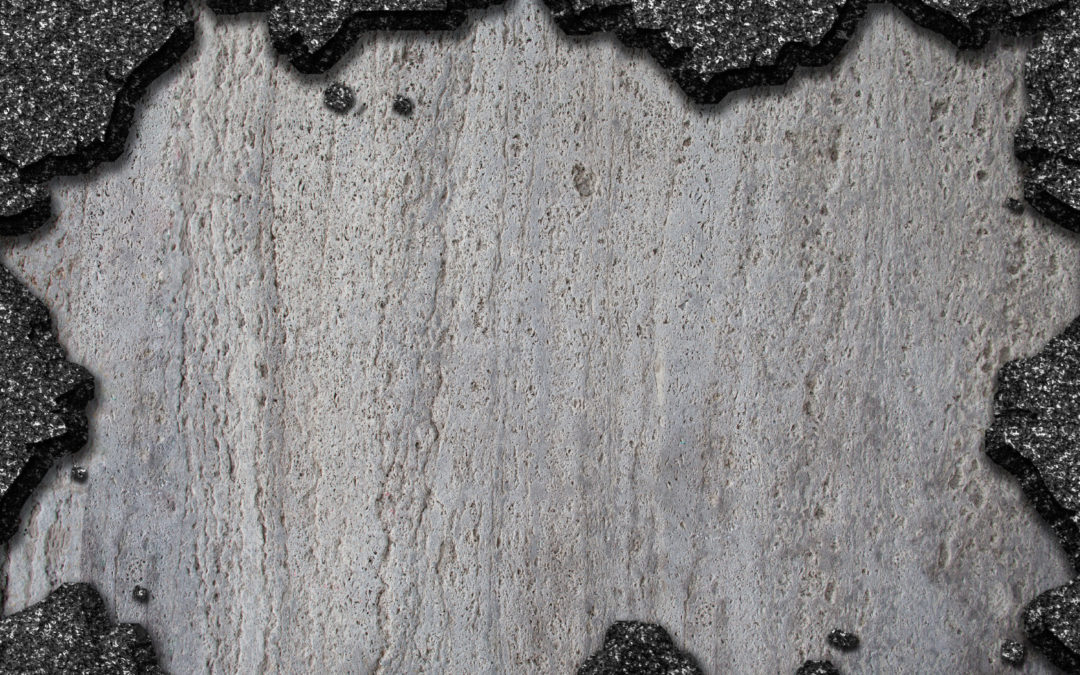
by lakeridge | Jul 10, 2019 | Residential Paving
Are you in the market for a new driveway and are trying to determine whether you should go with an asphalt driveway or a concrete driveway? The following are some important factors to consider when making your choice. Asphalt Driveways vs. Concrete Driveways Concrete driveways are, in general, one and a half to two times more expensive to install per square foot than asphalt driveways. This also means concrete driveways cost significantly more to repair compared with asphalt driveways. Some paving experts will tell customers that concrete driveways will last longer, but as with all home improvement services, the end results and their longevity has more to do with quality workmanship and materials than anything else. The other factor that will significantly impact the lifespan of any driveway, whether concrete or asphalt, is frequency of maintenance. A properly maintained asphalt driveway can last decades. Here are some other factors to keep in mind when trying to decide whether you want an asphalt driveway or a concrete driveway: It takes seven days of curing before you can drive on a concrete driveway, but you can drive on an asphalt driveway nearly right after it has been applied. When cracks do appear in an asphalt driveway they can be quickly and affordably repaired and resealed while still looking great. Cracks are harder to patch in concrete, are more noticeable and may require invasive, messy and time-consuming methods to fix. Asphalt is elastic enough to expand or contract with changes in temperature or when bearing heavy loads. Concrete driveways are more prone to crack in cold temperatures or under heavy weights. If...
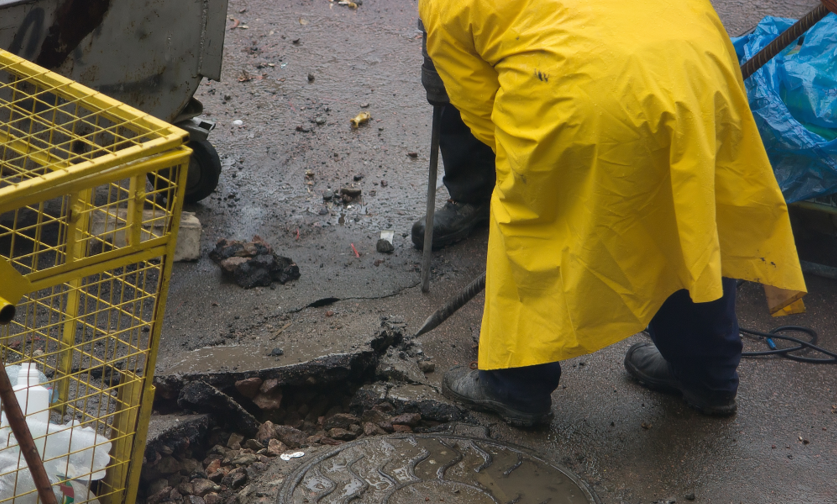
by lakeridge | Jan 16, 2019 | Commercial Paving, Residential Paving
Paving is one type of construction that can be significantly impacted by temperature. What tends to matter more than the actual ambient temperature is the ground temperature and moisture levels. Even if it’s 45 degrees outside in the morning, the ground itself is likely colder from the night before, and its important for the ground to be adequately warm to lay asphalt. Proper compaction requires the asphalt to remain above a certain temperature during the process. If the ground is too cold it will leach the heat out of the asphalt too quickly, which means it may settle before paving crews can finish compacting and smoothing it. Evaporating rainwater also has a cooling effect, which can result in similar complications if a job isn’t scheduled appropriately to minimize these issues. There are ways around low temperatures for small scale jobs, such as filling potholes. Asphalt pavers with infrared paving equipment can utilize heaters and hot boxes to keep the asphalt dry and maintain a suitable temperature throughout the job. This equipment generally can’t be used for larger jobs, like repaving a road or an entire parking lot, because the infrared asphalt heaters don’t cover a large enough area. How Cold Is Too Cold for Asphalt Paving in Seattle? The real issue with temperature is its impact on our ability to properly compact the asphalt before it cools too much. As a rule of thumb a thin, 1.5-inch layer of asphalt needs to be entirely compacted within 16 minutes of its application if the ambient temperature is in the 40 to 45-degree Fahrenheit range. When hot mix asphalt is delivered...
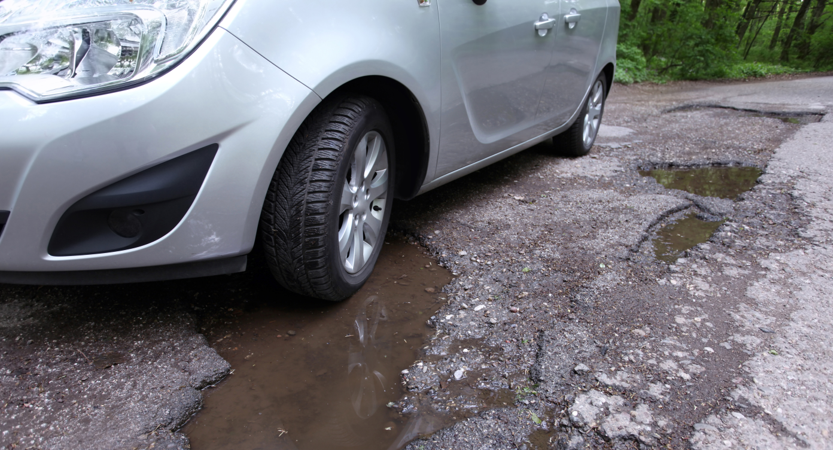
by lakeridge | Jan 16, 2019 | Residential Paving
The winter months can be especially hard on asphalt parking lots, roads and driveways. Nothing weakens and eventually destroy asphalt surfaces quite like the freeze-thaw cycle. Although freezing temperatures aren’t always a huge concern for the Seattle area, we do have enough rain and temperature swings to batter asphalt. When potholes do form, it’s important to fix them fast so they don’t turn into bigger problems. The last thing you want is for someone to be injured or damage their vehicle on your property – and there are few things as jarring and annoying than hitting a pothole when you’re driving. Potholes that are left unaddressed can also spread and result in further damage. The Best Method for Pothole Repair: Cold Patch or Hot Mix Asphalt? Cold patch asphalt is already mixed, which allows these repairs to be performed quickly and simply. This is the most DIY friendly option and it doesn’t take long to apply, but it’s also the less effective and short term of the two methods. To perform cold patch asphalt repair, you just need to get already-mixed asphalt from a local hardware store, pour it into the hole and pack it as much as you can with a tamper. Rest assured, a cold patched pothole will return because this solution doesn’t provide a tight enough seal to prevent future moisture penetration. The other factor that makes cold patch mix a short-term solution is its composition, which isn’t formulated to stand up to the rigors of frequent traffic. Hot mix asphalt repair is the only long-term pothole fix that will prevent the pothole from resurfacing again....








